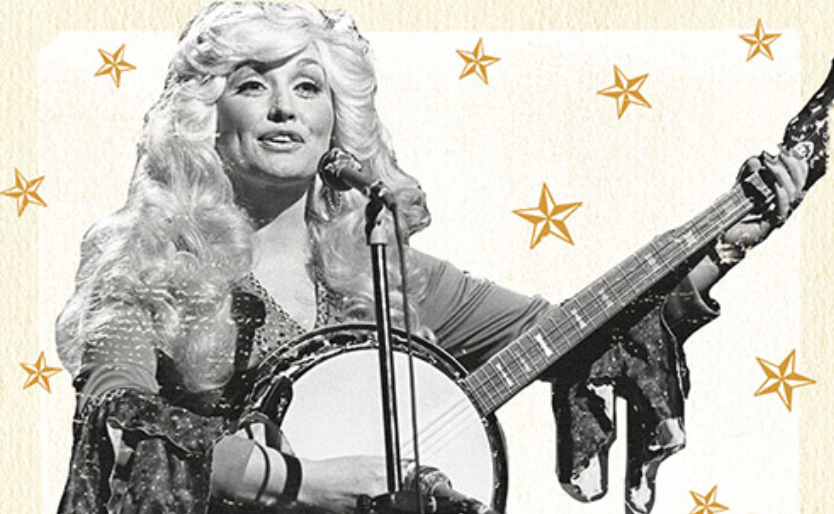Sarah Smarsh’s She Come by It Natural pays unique tribute to Dolly Parton
By Emily Choate, for Chapter16.org
Sarah Smarsh’s She Come by It Natural—part biography, part memoir, part love letter—arrives at a fascinating time in the evolving cultural persona of Dolly Parton. Last fall, the podcast series “Dolly Parton’s America” opened the world of Parton’s life and career to a wider audience. This spring, Parton donated $1 million to COVID-19 research at Vanderbilt University. In August, she expressed support for Black Lives Matter, raising affectionate cheers from many quarters and vicious insults from others.

She Come by It Natural does more than chronicle the salient points of Parton’s impoverished East Tennessee upbringing, her rise to fame, and her transformation into a one-woman juggernaut of music, business, philanthropy, and cultural bridge building. Smarsh also sets out to shed light on Parton through the examples of women in Smarsh’s own working-class origins, most notably her memorable grandmother Betty, whose spirited but harrowing personal history reads as if it could have sprung from some long-lost verses of “Jolene” or “Here You Come Again.”
In the chapter “Dolly Parton Masters the Art of Leaving,” Smarsh offers some of her most insightful thoughts on Parton’s songwriting. Tracing in detail Parton’s complex relationship with her boss/ mentor/ collaborator/ antagonist Porter Wagoner, Smarsh discusses the tangled binds that sometimes push women to leave painful relationships that have gone on far too long. She links these experiences (through Parton’s songwriting) to the specific psychology of the small-town woman who needs to make an escape.
“The hard-up woman is less tethered to place than the middle-class one,” Smarsh argues. “The poor woman will have a harder time finding resources for hitting the road, but in spirit she is what they call a flight risk, and what she longs to fly away from is more than a wayward man. It’s a small town, a brutal job at the factory, an entire class.”
Smarsh first wrote about her rural Kansas upbringing in 2019’s Heartland, which became a finalist for National Book Award. In that memoir, as well as in her work as a freelance journalist, Smarsh writes with conviction about the particular struggles of living in poverty. Wisely, she grounds these discussions in a recognition of white privilege, but her primary focus is on the nature of economic hardship and its impact on women’s decisions.
In Parton’s case, Smarsh argues, the legacy of leaving home — not just to become a star, but also to flee hardship and the confining strictures around her personal choices — also involved a powerful return home. Parton shows unshakeable commitment to her Smoky Mountain homeland through numerous business and philanthropic ventures, such as Dollywood theme park’s formidable job creation and Imagination Library’s donation of over 100 million books to young children.

She Come by It Natural: Dolly Parton and the Women Who Lived Her Songs
By Sarah Smarsh
Scribner
208 pages
$22
Sarah Smarsh will discuss She Come by It Natural at the 2020 Southern Festival of Books, held online Oct. 1-11.
Smarsh weaves together an integrated picture of what the Parton podcast calls “the Dollyverse.” The disarming extremity of Parton’s hyperfeminine appearance, her fierce ownership of every aspect of her career, the reluctance she voices about using the word “feminist” — for Smarsh, all these elements spring from Parton’s push-pull relationship to her origins.
The material in She Come by It Natural first appeared in the music magazine No Depression, unfolding quarterly in four longform pieces throughout 2017. Smarsh made the conscious decision not to update the original perspective, and one result is that this short book becomes an intriguing snapshot of one writer’s engagement with a fraught year of rapidly shifting cultural turmoil.
Each installment enfolds Parton’s life — past and present — into the context of a year that included the immediate fallout of the 2016 presidential election. Some references hold up well, such as images from the 2017 Women’s March. Others, like a scene from the sitcom Roseanne illustrating her point about working-class women’s solidarity in Parton’s music, read differently in 2020. In the book’s foreword, Smarsh acknowledges this effect, pointing out that Rosanne Barr’s recent turn toward racist rhetoric makes it unlikely that she would cite Barr’s work now.
Acknowledgments of this kind feel important to make as cultural winds shift faster than ever. Parton herself provides a unique, engaging lens through which to consider how we let one another publicly evolve and learn. However, as Smarsh reminds us, Parton is more than a lens for cultural study, or a gender performance of hyperbolic femininity, or a cultural life raft to whom we cling when it seems that the left and the right can no longer find ways to communicate. Parton is more than a series of avatars or projections. Like us, she’s a fallible human being, learning on the fly.
She Come by It Natural will appeal to a wide range of readers who are curious about Parton. Smarsh finds a sweet spot between biography and memoir that lets her move nimbly between her personal affection for Parton’s impact on women’s lives and her journalistic analysis of Parton’s artistry, business acumen, and iconic role in our quick-changing zeitgeist.
Emily Choate is the fiction editor of Peauxdunque Review and holds an M.F.A. from Sarah Lawrence College. Her fiction and nonfiction have appeared in Mississippi Review, Shenandoah, The Florida Review, Atticus Review, Tupelo Quarterly, Bayou Magazine Online, Late Night Library, and elsewhere. She lives near Nashville, where she’s working on a novel.

